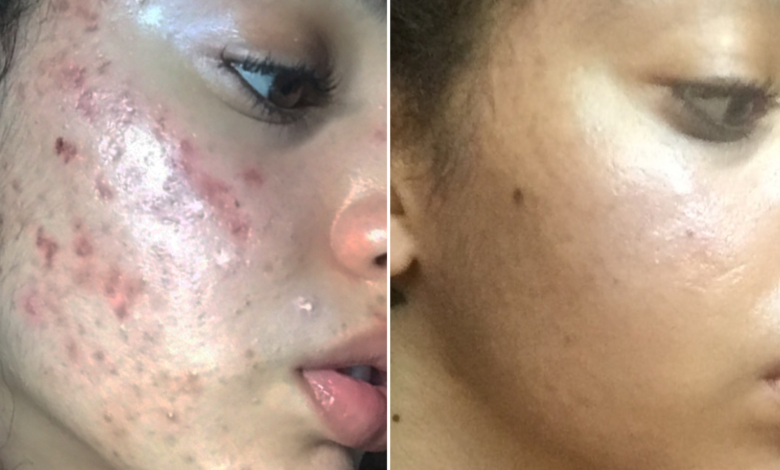
A pimple is a kind of comedo that results from excess sebum and dead skin cells getting trapped in the pores of the skin.
Areas of the skin that have the largest number of functional oil glands, such as the face, neck, chest, back and shoulders, are often affected.
Table of Contents
10 BEST WAYS TO ELIMINATE PIMPLES
1. Know Your Skin Type
Anyone can get pimples, no matter their skin type. Oily skin is the most pimple-prone.
It’s caused by your skin’s sebaceous glands producing too much oily sebum.
Another type of skin that may cause pimples is combination skin. Combination skin means you have both dry areas and oily areas.
The oily areas tend to be your forehead, nose, and chin, also called your T-zone.
Knowing your skin type will help you choose the right skin care products.
For example, if your skin is oily, choose noncomedogenic products that are formulated to not block pores.
2. Limit makeup Application
It’s tempting to use makeup to cover up pimples. However, doing so may clog pores and trigger outbreaks.
Go au naturel when you can. When you do wear makeup, avoid greasy, heavy foundation, and use products that are noncomedogenic, sheer, and fragrance-free.
Greasy or oily shampoos, body washes, shaving creams, and hair styling products may all cause pimples.
To help prevent outbreaks, choose oil-free, noncomedogenic options.
3. Properly Wash Your Face
To help prevent pimples, it’s important to remove excess oil, dirt, and sweat daily.
Washing your face more than twice a day may make acne worse, however.
Don’t wash your face with harsh cleansers that dry skin. Use an alcohol-free cleanser.
To wash your face:
- Wet your face with warm, not hot, water.
- Apply a mild cleanser in a gentle, circular motion using your fingers, not a washcloth.
- Rinse thoroughly, and pat dry.
4. Reduce Stress
Stress doesn’t cause pimples, but it may make them worse.
According to the American Academy of Dermatology, research has shown that when you’re stressed, your body produces more oil-stimulating hormones.
Ways To Help You Manage Stress Are:
- yoga
- meditation
- journaling
- massage
- aromatherapy.
5. Moisturize Skin
Moisturizers help skin stay hydrated. But many moisturizers contain oil, synthetic fragrance, or other ingredients that may irritate skin and cause pimples.
To help prevent pimples, use fragrance-free, noncomedogenic moisturizers after you wash your face or when your skin feels dry.
6. Keep Body Hydrated
If you’re dehydrated, your body may signal your skin’s oil glands to produce more oil.
Dehydration also gives your skin a dull appearance and promotes inflammation and redness.
To keep your body well-hydrated, drink at least eight 8-ounce glasses of water each day.
Drink more after exercise, if you’re pregnant or breastfeeding, or you spend time in a hot, humid environment.
7. Don’t Touch Your Face
Your hands encounter grime and bacteria constantly throughout the day.
And each time you touch your face, some of those pore-clogging impurities may get transferred to your skin.
By all means, if your nose itches, scratch it. But wash your hands regularly, and try to touch your face as little as possible.
8. Try Tea Tree Oil
Tea tree oil is a popular folk remedy for pimples. According to the Mayo Clinic, it may “reduce the number of inflamed and non-inflamed lesions.”
To use tea tree oil for pimples, apply a couple drops to the inflamed area. You can also add a few drops to your daily cleanser or moisturizer.
Prior to using undiluted tea tree oil on your face, do a patch test to see if it irritates your skin.
Apply a few drops behind your ear or to your forearm, and wait several hours. If irritation occurs, dilute the oil using a 50-50 ratio before using.
9. Limit Sun Exposure
Catching some rays may dry out pimples in the short term, but it causes major problems in the long run.
Frequent sun exposure dehydrates the skin, which over time causes it to produce more oil and block pores.
It’s important to wear sunscreen to help prevent skin cancer. However, many sunscreens are oily.
For both sun and pimple protection, wear a noncomedogenic, oil-free sunscreen.
9. Stop Popping Pimple
As tempting as it may be to squeeze that larger-than-life whitehead on the tip of your nose, don’t.
Popping pimples may cause bleeding, severe scarring, or infection.
It may also increase inflammation and clog surrounding pores, making your pimple problem worse.
10. Use Antibiotics
Antibiotics help reduce inflammation and bacteria on the skin.
Antibiotics are often prescribed. They may be applied topically to your skin or taken by mouth.
Those taken by mouth are usually a last resort for people whose acne is severe or doesn’t respond to other treatments.
Long-term antibiotic use increases your risk of antibiotic resistance.
If your healthcare professional recommends antibiotic therapy for pimples, make sure you talk to them about the risks and side effects.
For any important information please contact us Email GadgetsNg info@gadgetsng.com
[Button id="1"]
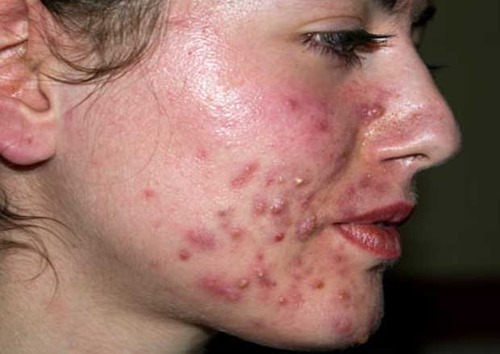
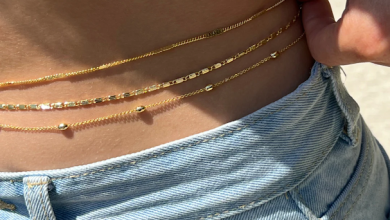
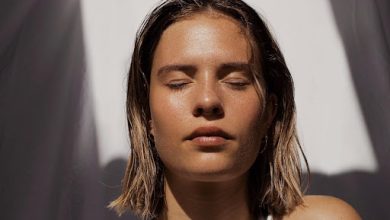
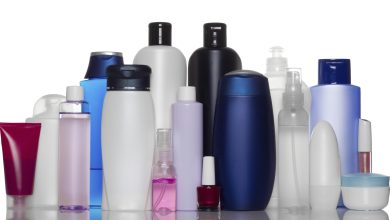
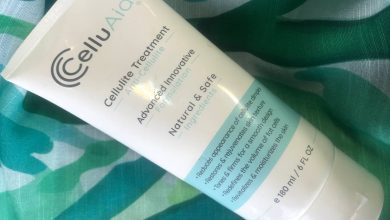
Thank you very much for sharing, I learned a lot from your article. Very cool. Thanks. nimabi
Hey I know this is off topic but I was wondering if you knew of any widgets I could add to my
blog that automatically tweet my newest twitter updates.
I’ve been looking for a plug-in like this for quite some time
and was hoping maybe you would have some experience with something like this.
Please let me know if you run into anything. I truly enjoy reading your blog and I look forward to your new updates.
hello there and thank you for your information – I have definitely picked up anything new from right here.
I did however expertise some technical issues using
this site, as I experienced to reload the site many times previous to
I could get it to load properly. I had been wondering if your web hosting is OK?
Not that I’m complaining, but slow loading instances times will often affect your placement in google and can damage your high quality score if ads and
marketing with Adwords. Well I am adding this RSS to my
e-mail and can look out for much more of your respective fascinating content.
Ensure that you update this again soon.
Good day! I could have sworn I’ve visited your blog before but after going through a few of the articles
I realized it’s new to me. Anyways, I’m
definitely happy I found it and I’ll be book-marking it and checking back regularly!
Thanks for a marvelous posting! I seriously enjoyed reading it, you happen to be a
great author.I will remember to bookmark your blog and definitely will come
back in the future. I want to encourage you to continue
your great job, have a nice weekend!
You have made some decent points there. I checked on the internet for more
information about the issue and found most individuals will go along with your views on this web site.
It’s genuinely very difficult in this busy life
to listen news on Television, thus I just use world wide web for that purpose, and obtain the latest news.
Undeniably believe that which you said. Your favorite reason appeared to be
on the net the simplest thing to be aware of. I say to you, I definitely get irked while people
think about worries that they plainly don’t know about.
You managed to hit the nail upon the top and defined out the whole thing without having side effect , people could take a signal.
Will likely be back to get more. Thanks
I loved as much as you will receive carried out right
here. The sketch is tasteful, your authored
subject matter stylish. nonetheless, you command get bought an nervousness over that you wish be delivering the following.
unwell unquestionably come more formerly again as exactly the same nearly a lot often inside
case you shield this increase.
Remarkable things here. I’m very satisfied to look your article.
Thank you a lot and I’m looking forward to contact
you. Will you kindly drop me a e-mail?
My partner and I stumbled over here by a different website and thought I might check things out.
I like what I see so i am just following you. Look forward to
checking out your web page again.
Forr instance, all £10 deposit casino websites have a minimum deposit requirement of tenn pounds.
Also visit my webpage – 우리카지노 추천
bookmarked!!, I like your site!
Hello! This is my first visit to your blog!
We are a collection of volunteers and starting a new initiative in a community in the
same niche. Your blog provided us useful information to work on.
You have done a marvellous job!
Simply wish to say your article is as astounding. The clearness in your post is just excellent
and i could assume you are an expert on this subject.
Well with your permission let me to grab your RSS feed to keep updated with forthcoming
post. Thanks a million and please keep up the gratifying work.
For newest information you have to go to see internet and on the web I
found this web page as a most excellent website for newest updates.
Hello Dear, are you truly visiting this site regularly, if so then you will absolutely obtain good know-how.
It is the best time to make some plans for the future and it is time to be
happy. I’ve read this post and if I could I wish to suggest
you few interesting things or suggestions. Maybe you could write next articles referring to this article.
I wish to read more things about it!
I loved as much as you’ll receive carried out right here.
The sketch is attractive, your authored subject matter stylish.
nonetheless, you command get bought an nervousness over that you
wish be delivering the following. unwell unquestionably come more formerly again as exactly the same nearly a lot often inside case you shield this increase.
Excellent post. I will be facing many of these issues as well..
I have to thank you for the efforts you have put in penning this website.
I am hoping to view the same high-grade blog posts from you in the future as well.
In truth, your creative writing abilities has encouraged me to get my very
own website now 😉
Howdy! Someone in my Myspace group shared this site with us so I
came to look it over. I’m definitely enjoying the information.
I’m bookmarking and will be tweeting this to my followers!
Great blog and excellent design.
Hi to all, it’s really a nice for me to pay a quick visit this
web site, it consists of helpful Information.
I’ve been exploring for a bit for any high quality articles or blog posts on this sort
of house . Exploring in Yahoo I eventually stumbled
upon this website. Studying this information So i’m satisfied to exhibit that I’ve
an incredibly good uncanny feeling I found out just what
I needed. I such a lot indisputably will make sure to
do not fail to remember this site and give it a glance on a
continuing basis.
Hi there, I discovered your blog by the use of Google even as looking for a similar matter, your website came up,
it appears great. I’ve bookmarked it in my google bookmarks.
Hello there, simply became aware of your blog through Google, and found that it
is really informative. I’m going to be careful for brussels.
I’ll be grateful should you continue this in future.
Many other people can be benefited from your writing.
Cheers!
Normally I do not read post on blogs, but I wish to say that this write-up very forced me to check out and do it!
Your writing style has been amazed me. Thank you, very great post.
Hey I know this is off topic but I was wondering if you knew of
any widgets I could add to my blog that automatically tweet
my newest twitter updates. I’ve been looking for a plug-in like
this for quite some time and was hoping maybe you would have some experience with something like this.
Please let me know if you run into anything. I truly enjoy reading your blog and I
look forward to your new updates.
Thanks for sharing your thoughts about bokep bocil. Regards
Today, while I was at work, my cousin stole my iPad and tested to see if it can survive a twenty
five foot drop, just so she can be a youtube sensation.
My iPad is now destroyed and she has 83 views. I know this is totally
off topic but I had to share it with someone!
This is very interesting, You are a very skilled blogger.
I have joined your rss feed and look forward to seeking more
of your fantastic post. Also, I’ve shared your web site in my social networks!
Having read this I believed it was extremely enlightening.
I appreciate you taking the time and energy
to put this information together. I once again find myself spending a lot of time both reading and posting
comments. But so what, it was still worth
it!
Hi there! I just wish to give you a big thumbs up for
the great information you’ve got here on this
post. I am coming back to your web site for more soon.
An impressive share! I have just forwarded this onto a coworker who has been conducting a little research on this.
And he actually bought me lunch simply because I found it for him…
lol. So let me reword this…. Thanks for the
meal!! But yeah, thanks for spending some time to discuss this matter here on your web
page.
Pretty! This has been an extremely wonderful article.
Thanks for providing this information.
This is really interesting, You are a very professional blogger.
I’ve joined your rss feed and stay up for searching for more of your magnificent
post. Additionally, I’ve shared your web site in my social networks
Highly descriptive blog, I liked that a lot. Will there be a part 2?
Thank you for the auspicious writeup. It in truth was a entertainment account
it. Glance advanced to far delivered agreeable from you!
However, how could we be in contact?
What’s up colleagues, nice paragraph and good urging commented here,
I am genuinely enjoying by these.
Very nice post. I absolutely love this website.
Keep writing!
Thanks for finally talking about > 10 BEST WAYS TO ELIMINATE PIMPLES IN
A WEEK – Health GadgetsNG < Liked it!
In fact when someone doesn’t understand after that its up to other visitors that they
will help, so here it takes place.
Heya i’m for the first time here. I came across this board and I find It really useful &
it helped me out a lot. I hope to give something back and help others like you helped me.
wonderful post, very informative. I’m wondering why the opposite specialists of this
sector don’t understand this. You must continue your writing.
I am confident, you have a great readers’ base already!
Great article! This is the type of information that are supposed
to be shared around the internet. Disgrace on the seek engines
for no longer positioning this post upper! Come on over
and seek advice from my web site . Thanks =)
I do not know whether it’s just me or if everybody else experiencing problems with your site.
It appears like some of the text in your posts are running off the screen. Can somebody else please comment and let me know if this
is happening to them as well? This might be a problem with my internet browser because I’ve
had this happen previously. Thanks
Hi everyone, it’s my first pay a quick visit at this web page, and post is in fact fruitful in favor of me, keep up posting
such content.
I think this is one of the most important info for me. And i am glad reading your article.
But wanna remark on few general things, The site
style is ideal, the articles is really great : D. Good job, cheers
Hi there! I’m at work browsing your blog from my new
iphone 4! Just wanted to say I love reading your blog and look forward
to all your posts! Keep up the great work!
Generally I don’t learn article on blogs, but I would like to say that this write-up very compelled me to take a look at and
do it! Your writing style has been amazed me. Thanks, very nice
article.
I am regular reader, how are you everybody? This article posted at this website is truly nice.
WOW just what I was looking for. Came here by searching for bokep indo
I think this is among the most vital information for me.
And i’m glad reading your article. But should remark on some general things,
The website style is ideal, the articles is really nice : D.
Good job, cheers
hey there and thank you for your info – I’ve certainly picked up anything new from right here.
I did however expertise a few technical points using this site, as I experienced to reload the site
a lot of times previous to I could get it to load properly.
I had been wondering if your hosting is OK? Not that I am complaining, but sluggish loading instances times will very frequently affect your placement
in google and could damage your high-quality score if ads and marketing with Adwords.
Anyway I am adding this RSS to my email and can look out for much more
of your respective interesting content. Ensure that you update this again very soon.
Hello everyone, it’s my first visit at this web page,
and article is actually fruitful in support of me, keep up
posting these types of articles or reviews.
Hi there, just became alert to your blog through
Google, and found that it is truly informative.
I am gonna watch out for brussels. I will appreciate if you continue
this in future. A lot of people will be benefited from your writing.
Cheers!
Hello to all, as I am truly keen of reading this webpage’s post to be updated on a regular basis.
It consists of fastidious information.
If you are going for finest contents like me, simply pay a visit this web site all the time because
it offers feature contents, thanks
Hi there, i read your blog from time to time and i own a similar one
and i was just wondering if you get a lot of spam feedback?
If so how do you reduce it, any plugin or anything you can advise?
I get so much lately it’s driving me mad so any assistance
is very much appreciated.
That is a really good tip especially to those new to the blogosphere.
Simple but very accurate info… Thanks
for sharing this one. A must read article!
Thanks designed for sharing such a good opinion, piece of writing is fastidious, thats why i
have read it fully
Neat blog! Is your theme custom made or did you download it from somewhere?
A theme like yours with a few simple tweeks would really make my blog shine.
Please let me know where you got your theme. Appreciate
it
It’s actually very difficult in this busy life to listen news on Television, therefore I only use internet for that
purpose, and take the newest information.
I used to be suggested this website via my cousin. I am no longer
sure whether or not this post is written via him as no one else recognize such distinct about my trouble.
You are wonderful! Thank you!
There’s definately a great deal to know about this topic. I love all the points you have made.
I do not even know the way I stopped up here,
but I believed this submit was once good.
I do not know who you might be however certainly
you are going to a famous blogger if you aren’t already.
Cheers!
Thank you for the good writeup. It in fact was a
amusement account it. Look advanced to more added agreeable from you!
However, how could we communicate?
Attractive component of content. I simply stumbled upon your web site and in accession capital to say that I acquire actually loved account your
weblog posts. Anyway I will be subscribing on your feeds
or even I achievement you get admission to
persistently rapidly.
I got this web site from my friend who shared with me about this site
and at the moment this time I am browsing this site and
reading very informative articles here.
Hi there, I enjoy reading all of your article.
I like to write a little comment to support
you.
We stumbled over here by a different website and thought I should check things out.
I like what I see so now i’m following you. Look forward
to finding out about your web page again.
I like reading an article that will make people think. Also, thank you for
allowing me to comment!
Greetings! This is my 1st comment here so I just wanted to give a quick
shout out and tell you I genuinely enjoy reading
your posts. Can you suggest any other blogs/websites/forums that go over the same subjects?
Thanks for your time!
I go to see day-to-day a few blogs and blogs to read content, but this website presents feature based writing.
Great post. I was checking constantly this blog and I’m impressed!
Very helpful information particularly the last part 🙂 I care for such information much.
I was looking for this particular info for a long time.
Thank you and best of luck.
Hi, after reading this amazing paragraph i am as well cheerful to
share my know-how here with mates.
I just like the helpful information you supply to your articles.
I will bookmark your blog and take a look at again right here
regularly. I am fairly sure I will learn many new
stuff right right here! Good luck for the next!
It’s very easy to find out any topic on net as compared to books, as I found this article at this site.
Hi, I log on to your new stuff like every week.
Your story-telling style is awesome, keep doing what you’re doing!
Hello all, here every one is sharing these know-how, thus it’s pleasant to read this blog,
and I used to visit this blog everyday.
Wonderful goods from you, man. I have understand your stuff previous
to and you are just extremely wonderful. I really like what you’ve acquired here, certainly like what you are stating and the way in which you say it.
You make it entertaining and you still take
care of to keep it smart. I can not wait to read much more from
you. This is really a great site.
I’m no longer sure where you are getting your information, but good topic.
I needs to spend some time learning more or figuring out more.
Thank you for wonderful info I used to be on the lookout for
this info for my mission.
After I initially commented I seem to have clicked the -Notify me when new comments
are added- checkbox and now whenever a comment is added I receive four emails with the same comment.
There has to be a way you are able to remove me from that service?
Kudos!
This design is spectacular! You definitely know how to keep a reader entertained.
Between your wit and your videos, I was almost moved to start my own blog (well, almost…HaHa!) Great job.
I really loved what you had to say, and more than that, how you presented it.
Too cool!
I was able to find good advice from your articles.
bookmarked!!, I really like your site!
Thank you for any other great post. Where else may anyone
get that type of information in such an ideal approach
of writing? I have a presentation subsequent week, and I am on the look for such info.
Woah! I’m really digging the template/theme of this
blog. It’s simple, yet effective. A lot of times
it’s tough to get that “perfect balance” between usability and visual appeal.
I must say you have done a awesome job with this.
Also, the blog loads extremely fast for me on Opera. Outstanding Blog!
Fantastic goods from you, man. I’ve understand your
stuff previous to and you’re just extremely great.
I actually like what you have acquired here, really like what
you’re saying and the way in which you say it. You make it enjoyable and you still care for to keep it
sensible. I can’t wait to read far more from you. This is really a great
site.
Excellent blog here! Also your website loads up very fast!
What host are you using? Can I get your affiliate link to your host?
I wish my web site loaded up as fast as yours lol
Paragraph writing is also a fun, if you know after that you can write or else it is complex to write.
Hello! Would you mind if I share your blog with my zynga group?
There’s a lot of people that I think would really enjoy your content.
Please let me know. Cheers
Definitely believe that that you said. Your
favorite justification seemed to be on the web the easiest thing to understand of.
I say to you, I definitely get irked at the same time as people consider concerns that they plainly
don’t recognise about. You managed to hit the nail upon the highest and also defined out the entire thing
without having side-effects , people could take a signal. Will likely be back to get more.
Thanks
What’s up, I log on to your blog daily. Your story-telling
style is awesome, keep doing what you’re doing!
Article writing is also a fun, if you know after that you can write otherwise it is difficult to write.
PBN sites
We will create a network of privately-owned blog network sites!
Merits of our privately-owned blog network:
We perform everything SO THAT Google DOES NOT understand that this A PBN network!!!
1- We obtain domains from distinct registrars
2- The primary site is hosted on a VPS hosting (Virtual Private Server is high-speed hosting)
3- The rest of the sites are on separate hostings
4- We attribute a separate Google account to each site with verification in Google Search Console.
5- We make websites on WordPress, we don’t employ plugins with aided by which malware penetrate and through which pages on your websites are created.
6- We refrain from reiterate templates and utilize only distinct text and pictures
We refrain from work with website design; the client, if wished, can then edit the websites to suit his wishes
п»їlegitimate online pharmacies india https://indiaph24.store/# cheapest online pharmacy india
india pharmacy mail order
Understanding COSC Validation and Its Importance in Horology
COSC Certification and its Stringent Standards
Controle Officiel Suisse des Chronometres, or the Controle Officiel Suisse des Chronometres, is the authorized Switzerland testing agency that verifies the precision and precision of timepieces. COSC certification is a sign of excellent craftsmanship and trustworthiness in chronometry. Not all timepiece brands follow COSC accreditation, such as Hublot, which instead sticks to its own stringent criteria with movements like the UNICO calibre, attaining comparable precision.
The Science of Exact Chronometry
The central mechanism of a mechanized timepiece involves the spring, which supplies energy as it unwinds. This mechanism, however, can be susceptible to environmental elements that may influence its accuracy. COSC-accredited movements undergo strict testing—over fifteen days in various conditions (5 positions, 3 temperatures)—to ensure their durability and dependability. The tests measure:
Mean daily rate precision between -4 and +6 seconds.
Mean variation, maximum variation levels, and impacts of temperature changes.
Why COSC Validation Matters
For timepiece aficionados and collectors, a COSC-certified watch isn’t just a piece of tech but a proof to enduring excellence and precision. It represents a watch that:
Offers excellent dependability and accuracy.
Ensures guarantee of quality across the whole construction of the watch.
Is likely to retain its value more effectively, making it a wise choice.
Famous Timepiece Brands
Several famous brands prioritize COSC certification for their timepieces, including Rolex, Omega, Breitling, and Longines, among others. Longines, for instance, provides collections like the Archive and Spirit, which feature COSC-certified mechanisms equipped with innovative substances like silicone balance suspensions to improve durability and efficiency.
Historic Background and the Evolution of Timepieces
The concept of the timepiece dates back to the requirement for exact chronometry for navigation at sea, highlighted by John Harrison’s work in the eighteenth cent. Since the formal establishment of COSC in 1973, the certification has become a standard for evaluating the precision of high-end timepieces, sustaining a tradition of superiority in watchmaking.
Conclusion
Owning a COSC-validated watch is more than an aesthetic selection; it’s a commitment to excellence and precision. For those appreciating accuracy above all, the COSC accreditation offers peacefulness of mind, ensuring that each certified timepiece will operate dependably under various conditions. Whether for individual contentment or as an investment, COSC-validated watches distinguish themselves in the world of watchmaking, carrying on a tradition of careful timekeeping.
En Son Zamanın En Fazla Popüler Casino Platformu: Casibom
Kumarhane oyunlarını sevenlerin artık duymuş olduğu Casibom, en son dönemde adından sıkça söz ettiren bir iddia ve casino web sitesi haline geldi. Ülkemizin en mükemmel casino sitelerinden biri olarak tanınan Casibom’un haftalık olarak göre değişen açılış adresi, alanında oldukça yeni olmasına rağmen emin ve kazandıran bir platform olarak tanınıyor.
Casibom, muadillerini geride bırakıp eski kumarhane platformların üstünlük sağlamayı başarılı oluyor. Bu pazarda köklü olmak gereklidir olsa da, oyunculardan etkileşimde olmak ve onlara ulaşmak da benzer derecede önemli. Bu aşamada, Casibom’un her saat hizmet veren canlı destek ekibi ile kolayca iletişime geçilebilir olması büyük bir fayda sağlıyor.
Süratle genişleyen oyuncu kitlesi ile dikkat çeken Casibom’un gerisindeki başarılı faktörleri arasında, sadece ve yalnızca casino ve canlı casino oyunlarına sınırlı olmayan kapsamlı bir servis yelpazesi bulunuyor. Sporcular bahislerinde sunduğu kapsamlı seçenekler ve yüksek oranlar, katılımcıları cezbetmeyi başarılı oluyor.
Ayrıca, hem spor bahisleri hem de casino oyunları oyuncularına yönlendirilen sunulan yüksek yüzdeli avantajlı promosyonlar da dikkat çekici. Bu nedenle, Casibom çabucak sektörde iyi bir pazarlama başarısı elde ediyor ve büyük bir oyuncuların kitlesi kazanıyor.
Casibom’un kar getiren promosyonları ve tanınırlığı ile birlikte, siteye üyelik ne şekilde sağlanır sorusuna da bahsetmek elzemdir. Casibom’a hareketli cihazlarınızdan, bilgisayarlarınızdan veya tabletlerinizden tarayıcı üzerinden kolaylıkla erişilebilir. Ayrıca, sitenin mobil uyumlu olması da önemli bir artı sunuyor, çünkü artık neredeyse herkesin bir akıllı telefonu var ve bu akıllı telefonlar üzerinden hızlıca giriş sağlanabiliyor.
Taşınabilir tabletlerinizle bile yolda gerçek zamanlı tahminler alabilir ve maçları gerçek zamanlı olarak izleyebilirsiniz. Ayrıca, Casibom’un mobil uyumlu olması, memleketimizde kumarhane ve oyun gibi yerlerin yasal olarak kapatılmasıyla birlikte bu tür platformlara erişimin önemli bir yolunu oluşturuyor.
Casibom’un itimat edilir bir kumarhane sitesi olması da önemlidir bir artı sağlıyor. Belgeli bir platform olan Casibom, duraksız bir şekilde eğlence ve kar elde etme imkanı sağlar.
Casibom’a kullanıcı olmak da oldukça rahatlatıcıdır. Herhangi bir belge şartı olmadan ve ücret ödemeden siteye kolaylıkla kullanıcı olabilirsiniz. Ayrıca, web sitesi üzerinde para yatırma ve çekme işlemleri için de birçok farklı yöntem bulunmaktadır ve herhangi bir kesim ücreti isteseniz de alınmaz.
Ancak, Casibom’un güncel giriş adresini takip etmek de elzemdir. Çünkü canlı şans ve oyun web siteleri popüler olduğu için sahte siteler ve dolandırıcılar da belirmektedir. Bu nedenle, Casibom’un sosyal medya hesaplarını ve güncel giriş adresini düzenli aralıklarla kontrol etmek önemlidir.
Sonuç olarak, Casibom hem güvenilir hem de kazandıran bir kumarhane sitesi olarak ilgi çekici. Yüksek ödülleri, kapsamlı oyun alternatifleri ve kullanıcı dostu mobil uygulaması ile Casibom, kumarhane hayranları için mükemmel bir platform getiriyor.